

Certifications are an excellent way to demonstrate expertise in a particular field and to advance one’s career. In today’s fast-paced and ever-changing technological landscape, keeping up with the latest developments is crucial. With that in mind, we have compiled a list of the top 10 certifications in the world that are currently in high demand.
The list includes a range of certifications, from DevOps and DevSecOps to SRE and AIops. These certifications are designed to help professionals stay current with the latest trends and technologies in their respective fields. Whether you are a software engineer, data scientist, or cloud architect, there is a certification on this list that can help you advance your career and achieve your professional goals.

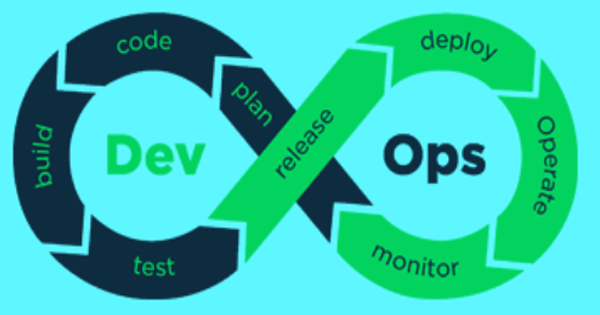
DevOps is a methodology that aims to improve collaboration and communication between development and operations teams. The DevOps Certified Professional (DCP) certification is designed to validate an individual’s understanding of the DevOps methodology and its implementation.
The DCP certification covers various topics, including continuous integration and delivery, infrastructure as code, monitoring, and automation. It is an excellent certification for individuals who want to pursue a career in DevOps or improve their skills in this field.
To obtain the DCP certification, candidates must pass an exam that tests their knowledge of DevOps concepts and tools. The exam consists of multiple-choice questions and requires a passing score of 65%.
Some of the benefits of obtaining the DCP certification include increased job opportunities, higher salaries, and improved credibility in the industry. It is also a great way to demonstrate a commitment to continuous learning and professional development.
Overall, the DCP certification is an excellent choice for individuals who want to improve their understanding of the DevOps methodology and its implementation. It is a valuable certification that can help individuals advance their careers in the field of DevOps.

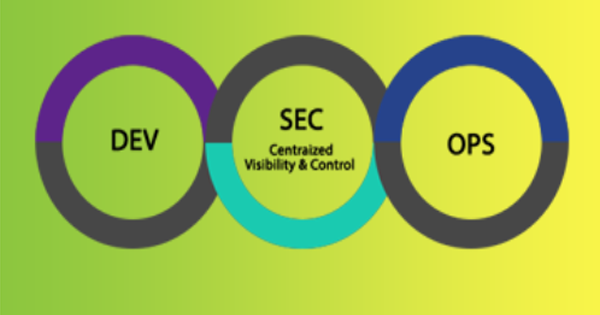
The DevSecOps Certified Professional (DSOCP) certification is designed for professionals who want to gain expertise in integrating security practices into the DevOps process. It is a comprehensive program that teaches the skills and knowledge required to build secure software applications and infrastructure.
The DSOCP certification is offered by various training providers, including the DevOps Institute, Practical DevSecOps, and EC-Council. Candidates can choose from different training formats, such as online self-paced courses, instructor-led virtual classes, or on-site training.
The DSOCP certification covers various topics, including secure software development, threat modeling, security testing, compliance, and risk management. It also focuses on the integration of security practices into the DevOps pipeline, such as continuous integration, continuous delivery, and continuous deployment.
To earn the DSOCP certification, candidates must pass a multiple-choice exam that tests their knowledge of DevSecOps practices and principles. The exam is usually proctored and can be taken online or in-person at a testing center.
The DSOCP certification is highly valued by organizations that want to build secure and resilient software applications. It demonstrates that the certified professional has the skills and knowledge required to implement security practices into the DevOps process and ensure the security of the software development lifecycle.

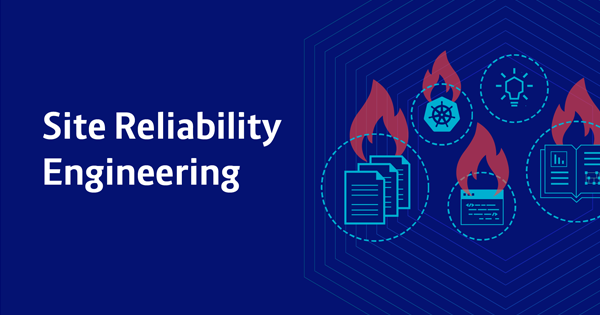
The Site Reliability Engineering Certified Professional (SRECP) certification course by DevOpsSchool is designed to help individuals learn the principles and practices that allow organizations to reliably and economically scale critical services.
The course covers topics such as SRE fundamentals, monitoring and alerting, incident management, capacity planning, and automation. It also includes hands-on exercises and case studies to reinforce the concepts covered in the course.
The SRECP certification is ideal for individuals who are interested in pursuing a career in site reliability engineering, as well as for those who are already working in the field and want to enhance their skills and knowledge.
By obtaining the SRECP certification, individuals can demonstrate to employers that they have the necessary skills and knowledge to design, implement, and manage reliable and scalable systems.
Overall, the SRECP certification is a valuable credential for anyone who wants to excel in the field of site reliability engineering and advance their career.


AiOps Certified Professional (AIOCP) is a certification that validates a professional’s knowledge and skillsets in the field of AIOps. The modern business landscape has transformed entirely with the likes of emerging technologies such as artificial intelligence, machine learning, and automation. Such technologies have also transfigured modern application architectures as well as IT operations. The AIOCP certification is designed to equip professionals with the necessary skills to leverage these technologies to improve IT operations.
The AIOCP certification is not an official certification, but it is offered by various organizations and training institutes. DevOpsSchool, for instance, provides AIOCP certification training that covers the fundamentals of AIOps, including machine learning, artificial intelligence, data analytics, and automation tools. The training also covers the critical skills required to implement AIOps in an organization, such as monitoring and incident management.
AIOCP certification is becoming increasingly popular among IT professionals due to the growing demand for AIOps. According to a report by MarketsandMarkets, the AIOps market size is expected to grow from USD 2.5 billion in 2019 to USD 11.02 billion by 2024, at a Compound Annual Growth Rate (CAGR) of 34.0% during the forecast period. This growth is driven by the need for IT organizations to improve their operational efficiency, reduce downtime and service disruptions, and enhance customer experience.
Professionals with AIOCP certification can expect to earn a lucrative salary. According to Payscale, the average salary of an AIOps professional is around 21 Lakh per annum in India. The salary can vary based on the level of experience, location, and industry.
In conclusion, AIOCP certification is an excellent way for IT professionals to upgrade their skills and stay relevant in the ever-evolving IT landscape. With the growing demand for AIOps, AIOCP-certified professionals can expect to have a promising career with excellent growth opportunities.

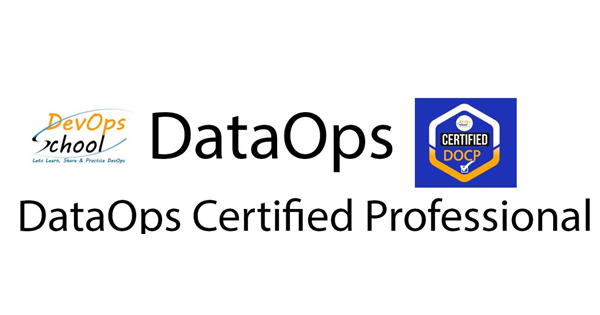
DataOps is a collection of technical practices, workflows, cultural norms, and architectural patterns that enable rapid innovation and experimentation delivering new insights to customers with increasing velocity. The DataOps Certified Professional (DOCP) certification is designed to validate the skills required to implement and manage DataOps practices.
The DOCP certification covers topics such as data integration, data quality, data governance, data security, and data privacy. The certification also includes hands-on experience with tools and technologies such as Apache Kafka, Apache Spark, Apache NiFi, and Apache Hadoop.
To obtain the DOCP certification, candidates must pass a multiple-choice exam that tests their knowledge of DataOps principles and practices. The exam is designed to assess the candidate’s ability to apply DataOps concepts to real-world scenarios.
The DOCP certification is ideal for professionals who work with data and want to improve their skills in DataOps practices. It is also suitable for professionals who want to transition into a career in DataOps.
In summary, the DOCP certification validates the skills required to implement and manage DataOps practices. It covers topics such as data integration, data quality, data governance, data security, and data privacy. The certification is ideal for professionals who work with data and want to improve their skills in DataOps practices.

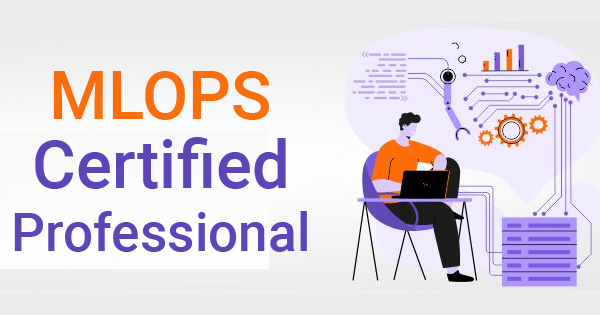
MlOps (Machine Learning Operations) Certified Professional is a certification that validates an individual’s proficiency in deploying, operating, and maintaining machine learning models in production environments. The certification is designed for professionals who have a background in software engineering, data science, and machine learning.
The MlOps Certified Professional certification covers the best practices, tools, and techniques for deploying, evaluating, monitoring, and operating production ML systems end-to-end. The certification also covers the integration of machine learning models with DevOps pipelines, containerization, and orchestration tools like Kubernetes.
To earn the MlOps Certified Professional certification, individuals must demonstrate their ability to deploy models into production environments using cutting-edge open-source frameworks. The certification also requires individuals to have a strong understanding of software engineering principles and DevOps practices.
The MlOps Certified Professional certification is highly valued in the industry as it validates an individual’s ability to deploy and maintain machine learning models in production environments. The certification is recognized by top companies like Google, Amazon, and Microsoft, and is considered a valuable asset for professionals looking to advance their careers in the field of machine learning.
In conclusion, the MlOps Certified Professional certification is an excellent choice for professionals who want to demonstrate their proficiency in deploying, operating, and maintaining machine learning models in production environments. The certification covers the best practices, tools, and techniques for deploying, evaluating, monitoring, and operating production ML systems end-to-end, and is recognized by top companies in the industry.


Master in Microservices is a certification program that provides comprehensive training in microservices architecture, design, and implementation. The program is designed for software engineers, architects, and developers who want to gain expertise in building scalable, maintainable, and resilient microservices-based applications.
The course covers a range of topics, including microservices architecture patterns, containerization, service discovery, load balancing, API gateway, and security. Participants will also learn about DevOps practices, including continuous integration and delivery, and how to use tools such as Docker, Kubernetes, and Jenkins.
The program is offered by various training providers, both online and in-person. The duration of the course varies from a few weeks to several months, depending on the provider. The course fee also varies, but it is generally affordable and provides good value for money.
Upon completion of the program, participants will have a strong understanding of microservices architecture and its implementation. They will be equipped with the skills and knowledge to design, build, and deploy microservices-based applications that are scalable, maintainable, and resilient.
Overall, the Master in Microservices certification program is an excellent choice for software engineers and developers who want to gain expertise in microservices architecture and design. It is a valuable credential that can help professionals advance their careers and stay competitive in the job market.


Python is one of the most popular programming languages in the world, and mastering it can open up a wide range of career opportunities. The Master in Python Programming certification is designed to provide learners with a comprehensive understanding of Python and its applications.
This certification covers a wide range of topics, including Python syntax, data structures, algorithms, object-oriented programming, and more. It also includes hands-on projects that allow learners to apply their knowledge in real-world scenarios.
The Master in Python Programming certification is ideal for individuals who want to become proficient in Python and its applications. It is also suitable for professionals who want to enhance their skills in data analysis, machine learning, and other related fields.
Some of the key benefits of this certification include:
- Comprehensive coverage of Python and its applications
- Hands-on projects that allow learners to apply their knowledge in real-world scenarios
- Recognition as a proficient Python programmer
- Increased career opportunities in a wide range of industries
Overall, the Master in Python Programming certification is an excellent choice for individuals who want to become proficient in Python and its applications. Whether you are a beginner or an experienced programmer, this certification can help you enhance your skills and advance your career.

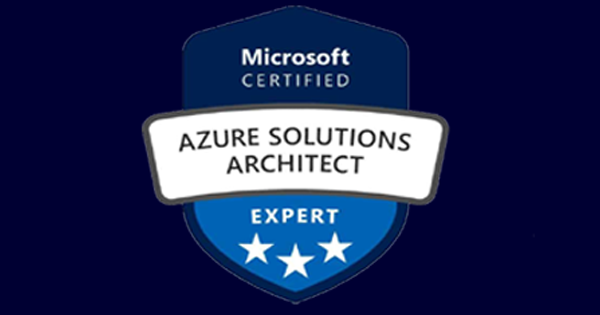
Azure Solutions Architect is a role-based certification offered by Microsoft that validates an individual’s expertise in designing and implementing solutions on Microsoft Azure. This certification is intended for professionals who are responsible for translating business requirements into secure, scalable, and reliable cloud solutions.
To earn the Azure Solutions Architect certification, candidates must pass two exams: AZ-303 and AZ-304. The AZ-303 exam focuses on Azure infrastructure, while the AZ-304 exam covers Azure solutions design and implementation.
The Azure Solutions Architect certification is designed to help professionals demonstrate their proficiency in various areas, including Azure compute, storage, networking, security, and identity. It also covers topics such as hybrid cloud, migration, and disaster recovery.
Professionals who hold the Azure Solutions Architect certification are in high demand, as more and more organizations are adopting cloud technologies to improve their operations and reduce costs. The certification can open up new career opportunities and increase earning potential.
In addition to the Azure Solutions Architect certification, Microsoft offers a range of other Azure certifications, including Azure Administrator Associate, Azure Developer Associate, and Azure Security Engineer Associate. These certifications are designed to validate an individual’s expertise in various Azure roles and technologies.
Overall, the Azure Solutions Architect certification is a valuable credential for professionals who want to demonstrate their expertise in designing and implementing solutions on Microsoft Azure. It can help individuals advance their careers and stay competitive in the rapidly growing cloud market.

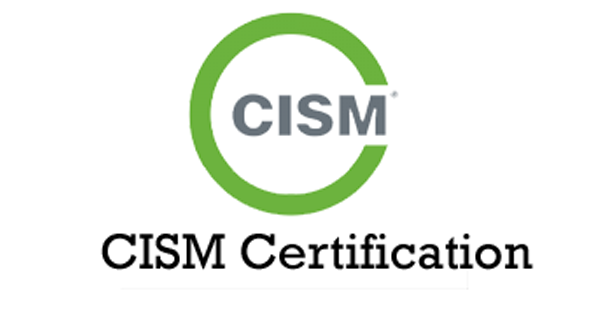
CISM (Certified Information Security Manager) is a globally recognized certification for professionals who manage, design, oversee, and assess enterprise information security. The certification is offered by ISACA (Information Systems Audit and Control Association), a global non-profit organization that provides IT governance, security, audit, and risk management professionals with the knowledge, tools, and resources they need to achieve their goals.
The CISM certification course is designed to help professionals learn about IT security systems and align with ISACA’s best practices. The course covers four domains: Information Security Governance, Information Risk Management, Information Security Program Development and Management, and Information Security Incident Management.
To become CISM certified, an individual must first meet the following requirements:
- Pass the certification exam
- Pay the US$50 application processing fee
- Submit an application to demonstrate experience requirements
The exam consists of 150 multiple-choice questions and takes four hours to complete. The passing score is 450 out of 800. The exam is offered in multiple languages and can be taken at a testing center or online.
The CISM certification is ideal for professionals who want to advance their career in information security management. It is also suitable for those who want to enhance their knowledge and skills in the field of information security.
Overall, CISM certification training is a valuable investment for professionals who want to stay up-to-date with the latest trends and best practices in information security management. It provides the knowledge and skills needed to effectively manage and protect enterprise information systems.

IT certifications have the potential to impact the career of IT professionals. As seen in the tutorial, AWS Certified Solutions Architect and CISSP are the most respected certifications among IT professionals. Choosing the right certification depends on one’s interest and career goals, and professionals need to invest time and effort to achieve the desired results.

- These certifications are highly sought after in the technology industry and can help professionals advance their careers.
- The list includes certifications in a variety of fields, including DevOps, DevSecOps, SRE, AIops, and more.
- By obtaining one or more of these certifications, professionals can demonstrate their expertise in a particular field and stay current with the latest trends and technologies.
Digital Marketing Manager at Cotocus


